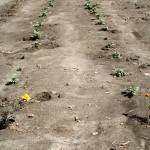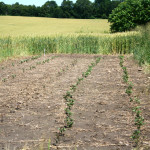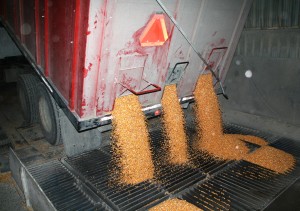 The Potato Project. (Click to embiggen.) |
I had a conversation with a neighbour in April about the success that the naturalist and environmental movements had in making outdoor nature studies part of the local school program. This discussion prompted a question: why wasn’t the farming community providing a comparable learning experience? Most children, particularly those living in urban areas, know little about local sources of their food, or how it is grown. Students from some rural Ontario schools visit a farm or an agricultural fair for a day, but I am not aware of any pupil in this province having the same experience as a farmer going to a farm field, preparing the soil, planting seeds, and then watching the crop grow until they can harvest it for food.
I asked if any local school had interest in participating in a potato growing pilot project at Thistle Ha’. Potatoes are the most commonly grown vegetable in the world. Planting and harvesting fit well within the school calendar. A teacher at Vimy Ridge Public School in Ajax very enthusiastically agreed to participate in our Potato Project this year. So a couple of weeks ago, a school bus came to Thistle Ha’, loaded with 19 willing potato planters and two teachers from the Vimy Ridge Public School EarthKeepers Club. We planted potatoes the same way my ancestors did in hand-made furrows. The first lesson learned was concern about the weather. The soil was just workable due to wet weather prior to planting day. Rain threatened during planting, but except for a few drops, it remained fair, and we planted five rows, totaling over 100 potato seeds, in two hours.
During school summer vacation, I do the hard part, controlling weeds and potato plant eating pests. Provided that we have good summer weather and rains, there should be plenty of potatoes for the EarthKeepers to return to harvest in September.
Click on the 2014 Potato Project link in the Pages column on the right to see progress photos during the summer.



